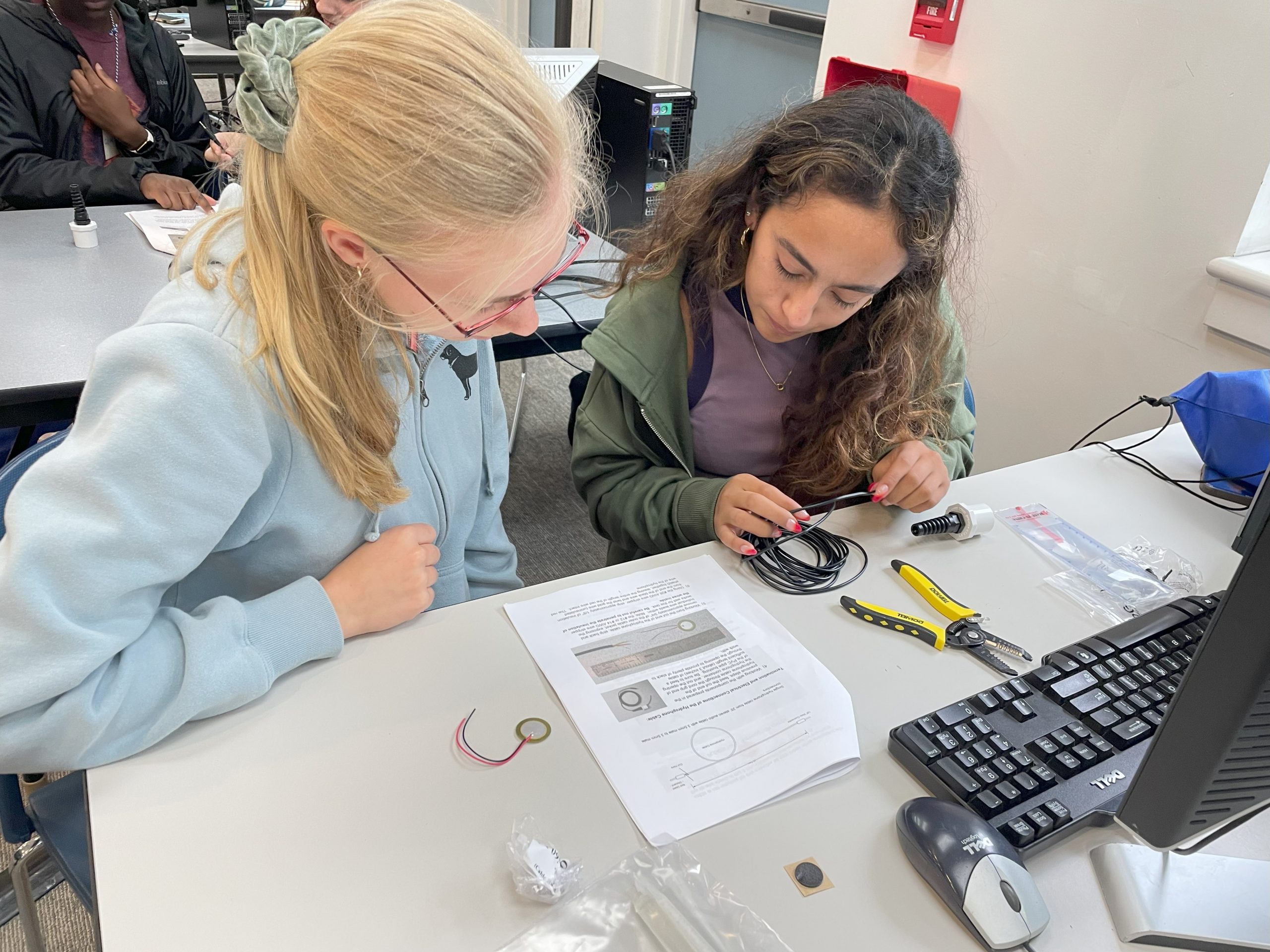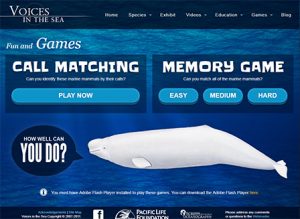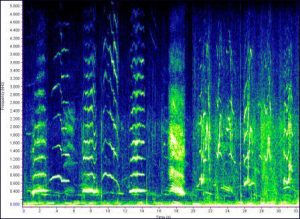Resources for Educators and Students
- How Whales Change the Climate: Video from Sustainable Human showing whales' role in the ecosystem and climate.
- Port Townsend Marine Science Center- Orca Bone Atlas: This is a great resource that shows an Orca skeleton and allows you to see 3-D views of various parts of the Orca.
- Monterey Bay Aquarium: Video on adaptations and climate change (we use this in our lesson).
- Seal versus Sea Lion taxonomy activity: This activity allows you to compare seal and sea lions by looking at images and watching video.
- All about blubber: These experiments allow students to test the effectiveness of blubber.
- US Global Change Research Program: Resources for educators on climate change and human health.
- Climate Literacy Framework: The essential principles of climate science
- The Nature Conservancy: Calculate your carbon footprint! Try it out!
- CarbonVisuals: A great product that gives a visual display of New York City's greenhouse gas emissions.
- Smithsonian National Museum of Natural History:: Ocean Portal: Animated video showing the evolution of a whale.
- The World Bank- YouTube Video: "World Could Be 4 Degrees Hotter by End of This Century."
- Reality Drop: Brought to you by The Climate Reality Project; a site that brings together collections of climate change myths and provides facts on public issues.
- Kids' Crossing: A resource for science education from the National Center for Atmospheric Research and the University Corporation for Atmospheric Research. Resources and games about climate, weather, and the atmosphere.
- NASA's Climate Kid Many resources on global climate change topics. Games, activities, answers to the "big questions," and more!
- The Guardian- Earth's electric night video: Video from Nasa satellite showing the electrical footprint across Earth's surface including electric light, gas flares, bush fires, and fishing boats.
- Green Ninja: An environmental superhero fighting climate change- watch the show! There's also an engaging curriculum and resources for teachers and students.
- Fish and People: 5 video and lesson modules using animation to visualize the human-fish relationship.
- NASA Climate: Important information on sea level rise, plus fact sheets and information on climate change.
- Sea Grant - BRIDGE Ocean Science Education: Teacher approved marine education materials.
- NOAA Ocean Acidification Program: Resources on ocean acidification. Teachers, check out the SOARCE webinars on how to effectively teach about ocean acidification.
- Encyclopedia of life: Education + Learning Resources: Many resources organized by subjects and themes for both land and marine life. For both teachers and students. Learn how to use and make biodiversity cards or print out pre-made cards.
- Northeast Fisheries Science Center sounds in the ocean page: Listen to marine mammals sounds and view species fact sheets.
- Voices in the Sea: Listen to cetacean and pinniped sounds and play the call matching or memory game!
- Alaska Fisheries Science Center sounds page: Listen to cetacean sounds from the North Pacific!
- Discovery of Sound in the Sea (DOSITS): A plethora of information, videos, and resources about the science and uses of sound in the sea.
- Macaulay Library: Cornell University's extensive archive of audio and video recordings for all types of animals.
- Right Whale Listening Network: Learn about North Atlantic Right Whales and how acoustic buoys can help prevent ship strikes.
- Scripps Institute of Oceanography bioacoustics page: Listen to marine bioacoustics and learn more about this area of research at Scripps.
- Kids Do Ecology: Santa Barbara: Humpback songs and videos as well as a quick explanation of how scientists record whale song.
- The World: Can you guess what makes this sound?
- Dolphin Research Center: An animated video showing the mechanics of how echolocation works in dolphins.
- NOAA/MML: Marine Mammal Lab information on echolocation. Additional information on marine mammals and careers involving them throughout the site.
- Noise Tube: You can use your smart phone to monitor noise pollution yourself by participating in this research project started at the Sony Computer Science Laboratory Paris.
- Smithsonian National Museum of Natural History: Ocean Portal for educators with great videos and information.
- Bridge: Teacher approved marine education materials.
- How Whales Change the Climate: Video from Sustainable Human showing whales' role in the ecosystem and climate.
- Sheppard Software's Kid's Corner: Food chain games and information.
- Science Kids: Food chains game- this simple interactive game allows you to spot living things, sort them into categories, and put them in a food chain.
- Fish and People: 5 video and lesson modules using animation to visualize the human-fish relationship.
- Ocean Drifters: a secret world beneath the waves: Video about the life and roll of plankton in the marine food web.
- NOAA Northwest Fisheries Science Center: Check out highly magnified images of some of the tiniest creatures in the sea!
- Encyclopedia of Life: Ecosystem Explorer: Explore through the Aquatic of Caribbean Coral Reef food webs to learn about interactions and each trophic level in the web. You can even create your own ecosystem!
- Arctic Ocean Diversity: Some amazing images that you can use to construct food webs or just discuss the rarely seen members of the marine food web.
- "Help Save Menhaden": This video from Pew illustrates the importance of menhaden in the food web.
- ARKive: Many lesson packs for teachers geared towards specific age groups.
- WhaleTimes SeaBed: Whales, dolphins, sharks, penguins, and more!
- Smithsonian National Museum of National History: Ocean Portal for educators.
- Bridge: Teacher approved marine education materials.
- Kids Do Ecology: Santa Barbara: This is a University of California Santa Barbara site but, it has some great creature pages on marine mammals you might find on the East Coast also!
- National Geographic: Blue Whale Migration Activity: This activity allows you to map blue whale migration and develop stories to explain their behavior.
- NOAA Office of Education: This resource collection on marine mammals includes valuable videos, background, activities and more.
- Sea Grant - BRIDGE Ocean Science Education: Teacher approved marine education materials.
- Science Kids: Plant & Animal Differences Game - This game allows you to sort plants and animals into different categories such as birds, insects, mammals, etc.
- NOAA Fisheries Office of Protected Resources: Whale species information.
- Whale Times SeaBed: Whales, dolphins, sharks, penguins, seals and more.
- Northeast Fisheries Science Center: sounds in the ocean page: Listen to marine mammals sounds and view species fact sheets.
- Northeast Regional Fisheries Office: North Atlantic right whale lesson: Discover the world of the North Atlantic right whale through lessons and activities on the biology, ecology, and conservation of this endangered species (Grades 6-8).
- Google Earth: Great tool to compare your and your students' local environment to that of marine mammals (we use this in our lesson).
- Explore.org: Explore dozens of live cams!
- North Atlantic Right Whale Consortium Education Committee: "Face-ing extinction:" A powerpoint presentation and curriculum and teacher's guide on the endangered North Atlantic right whale.
- Explore: Lots of great resources on whales and dolphins!
- Marine Mammal Commission: They have lessons on marine mammals for K-2, 3-5, 6-8, and high school.
- KidCyber: The basics of both toothed and baleen whales.
- NOAA Right Whale Sighting Advisory System - Interactive map of North Atlantic right whale sightings.
- NOAA Ocean Today: Learn about some of the many species in our local waters and all over the world. Fun and informative 2-minute videos from learning about the North Atlantic right whales to feeding giant octopuses!
- Encyclopedia of life: Education + Learning Resources: Many resources organized by subjects and themes for both land and marine life. For both teachers and students. Learn how to use and make biodiversity cards or print out pre-made cards.
- Marine Mammal Commission: They have lessons on marine mammals for K-2, 3-5, 6-8, and high school.
- University of Alaska Southeast - 4D Virtual Whale Necropsy: You can view the virtual necropsy of a humpback whale that washed up in 2021 or view the virtual necropsy workshop for classrooms/camps.
- NOAA Fisheries - Atlantic Salmon Ecosystems Research: This website has important information about the work being done by this group that partnered in designing this lesson and contributed data.
- NOAA Fisheries Resources for Teachers and Students: Additional education, outreach and events from the Atlantic Salmon Ecosystems Research Team.
- NOAA Fisheries Atlantic Salmon species page: Read all the facts about Atlantic Salmon and get information on management efforts.
- Salmon in the Classroom: This outlines the "Salmon Game". This details a very active game that illustrates the many challenges salmon face as they migrate out to sea. It gives you follow up ideas as well as introductory activities.
- NOAA Fisheries: Westcoast: NOAA's West Coast Region education and outreach page.
- USDA Kids corner: Lots of fun stuff to do in the kids corner from the Pacific Northwest Region Forest Service.
- NOAA video: Watch this short and informative video made by our NOAA folks that gives a summary of the Atlantic Salmon status.
- NOAA Fisheries: Learn about fish migration, barriers that can be problematic, and what NOAA scientists do to help.
- NOAA Fisheries: Endangered Species Act (ESA): Information on the endangered species listing.
- NOAA Marine Debris Coloring Book: A coloring book combining fun activities and messages about marine debris.
- Voices in the Sea: Video and information on whale entanglement.
- Balloons Blow: Balloons have a huge impact on the marine environment. Before you set your next celebratory balloon free, learn here about where they go and how they affect wildlife.
- NOAA Ocean Today: Trash talk! Let's learn about some of the issues facing our ocean, and what we can do to help fix it. A collection of 2-minute videos based on current threats.
- North Atlantic Right Whale Consortium Education Comittee: "Face-ing extinction:" A power point presentation and curriculum and teacher's guide on the endangered North Atlantic right whale.
- West Coast Ocean Data Portal: Visualize marine debris impacts with this interactive map that has many ocean data layers.
- Plastic Soup: Zoe Lewis sings about the plastic pollution and how we can help fix it.
- NOAA/MML: Marine Mammal lab information on marine mammals and careers involving them.
- Sea Level Rise in the Classroom: This is a high school curriculum focused on sea-level rise resilience.
- Nasa Climate Kids: This kid-friendly site has information about changing sea levels.
- What Makes the Sea Rise: This PBS activity explores how melting glaciers can cause sea levels to rise.
- Sea Level Rise and King Tides: This USC Sea Grant site has resources for educators when talking about climate change and coastal impacts.
Contact
Grace Simpkins
Woods Hole Sea Grant Educator
gsimpkins@whoi.edu
508-289-3639



